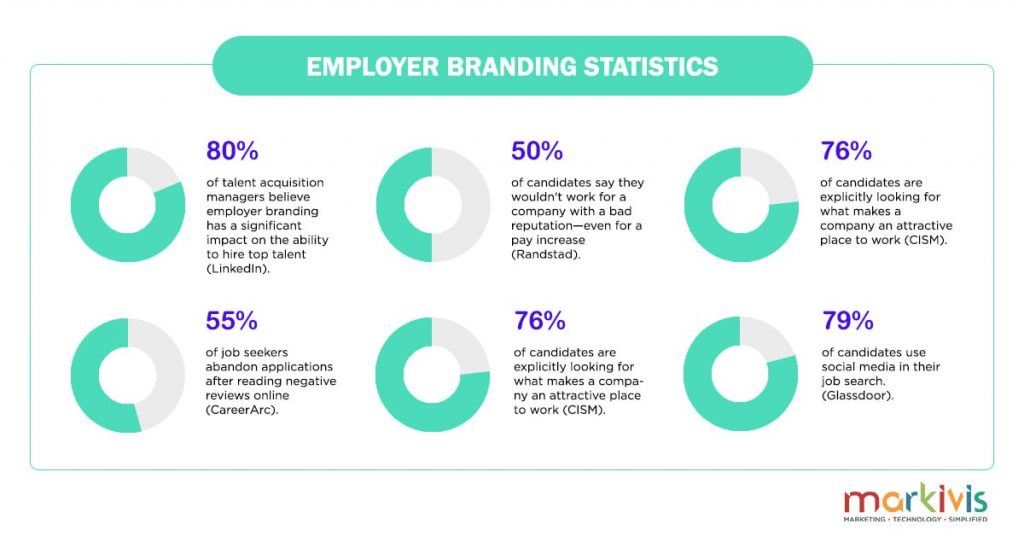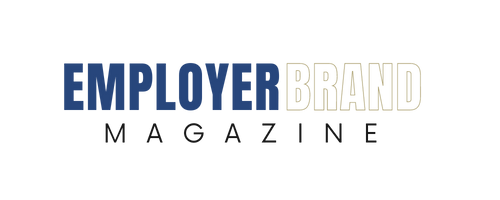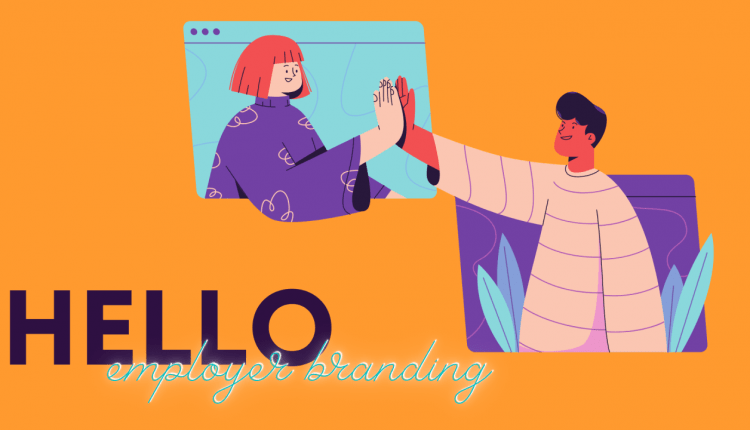Why Employer Branding is the best thing to happen to your business
You’ve probably invested a lot of your time, energy, and marketing resources in branding as a company. You’ve looked into ways to position your brand, its products and services at the top of searches for your potential clients. I can’t think of any company not looking to develop lasting business relations by the above mentioned.
But there’s a reason why job roles for “employer branding” are rising. Some may call it a buzzword, but this is more than a trend. 96% of companies believe employer brand and reputation can positively or negatively impact revenue, yet less than half (44%) monitor that impact (CareerArc).
The beauty of this lies at the intersection of marketing and recruitment. Having your collaborators become the face of your business, moving them from employees into brand ambassadors, pulls in strength from the inside to impact your brand awareness beyond new hires.
Like a company brand is the combined impression and perception an audience has about your company, its services and products; an employer brand is the impact and perception your company has on the workforce, i.e., your company’s reputation as an employer or place to work.
Nowadays, recruitment processes work similarly to marketing campaigns, so you have to make sure that the word that’s being put out there about your company is not only the truth but attracts the attention of the type of employees and talent that you’re looking for. If it’s not doing that, then the importance of investing time and money in employer branding strategy is evident.
Good employer branding will help you hire and retain talent in sync with your values, generate a positive company culture and image, and increase productivity. Have you heard the line “happy employees being more productive”? Well, it’s true. Forbes found that employees who are happy and satisfied with their jobs are 20% more productive than those who aren’t.

Investing time and resources into developing a strategy for employer branding will only be worth it if what you “sell” as a place of employment is attractive to the people you want, meaning you’re actually offering a positive environment, good benefits and opportunities for growth. Remember, money isn’t everything. According to Ranstad’s Employer Brand Research 2021, 50% of workers say they would not work for a company with a lousy employer reputation, even with a pay increase!
The same study indicates that 76% of employees who experience a strong alignment between what their employer says about themselves and their experience working there are more likely to recommend their employer as a place of work. So it all comes down to this, word of mouth is still one of the most potent tools for relaying information about anything, and who better to voice their opinions on what it means to work for you than your employees.
Employer branding is the best thing to happen to any business because no matter your strategy, it requires your business to be a place that people want to be part of. Especially in light of the world’s turmoil, with more (unfortunately) yet to come.
From a marketing perspective, this boosts brand awareness tremendously and allows your brand to move from faceless into human-centric. People buy from brands they can relate to, so adding content centred around those representing you daily will open the door to conversations about what you’re offering.
Not to mention the impact we’ve seen on harnessing LinkedIn through a united corporate strategy, where everyone’s profile points to one thing: your brand. Of course, everyone needs to be happy enough where they are to want to contribute genuinely. We’ve seen wonders working with the Steinway Pianos sales team. Each person’s profile focuses on sharing real content that aligns with their target audiences, boosting brand sales and overall direct lead interaction in an organic, human way.
Gone are the days of anonymous corporations. Humanity is in! We see the same tendencies in Web 3. Known for its pseudo-anonymity, but where projects with renowned Founders take the leader charts by storm. The ownership era is at our doorstep, and consumers still want to own things from those they trust. Our technology may evolve, but our human nature remains the same. Think of investing in making your brand a platform for its people, including clients and employees alike.


